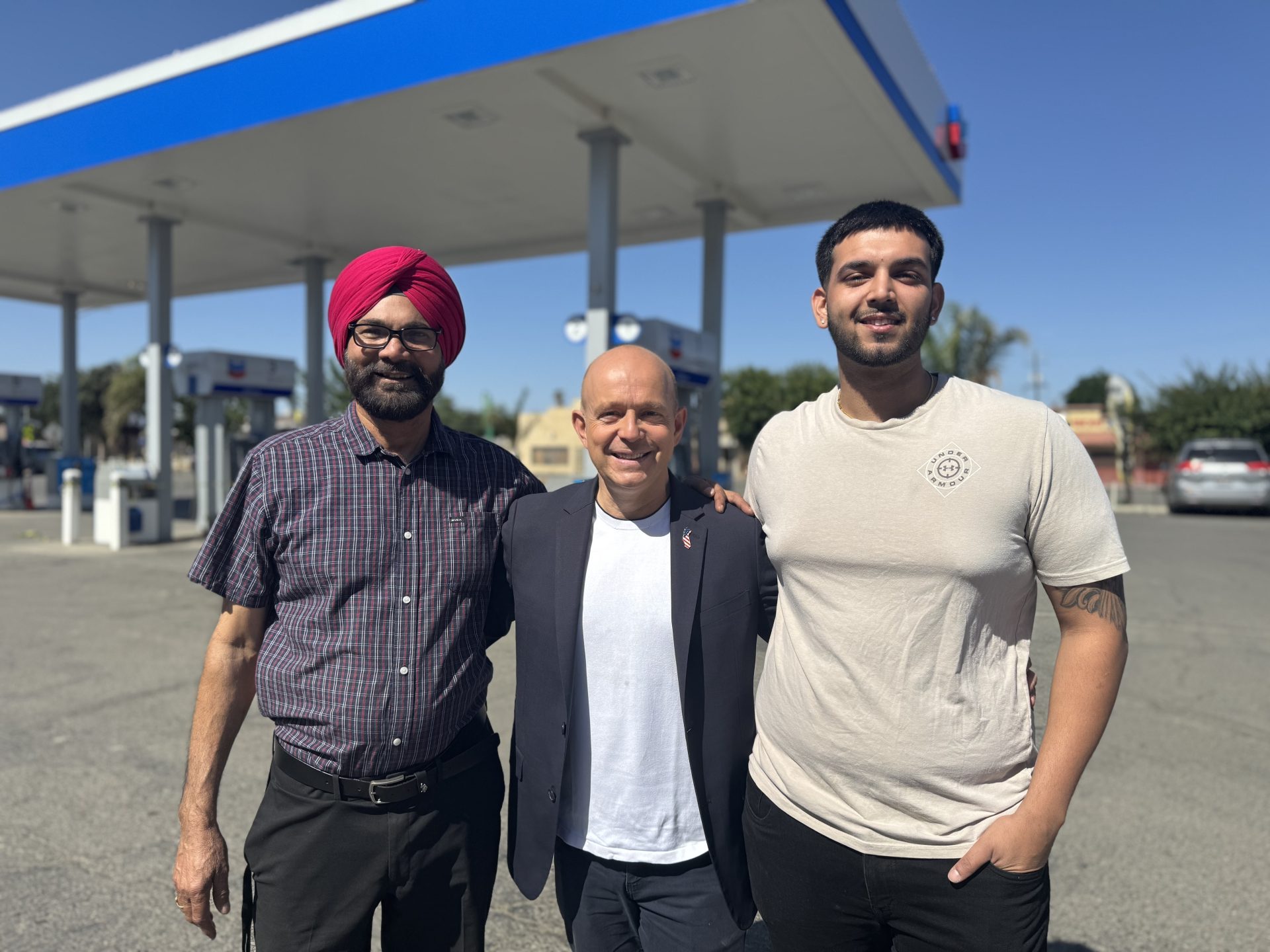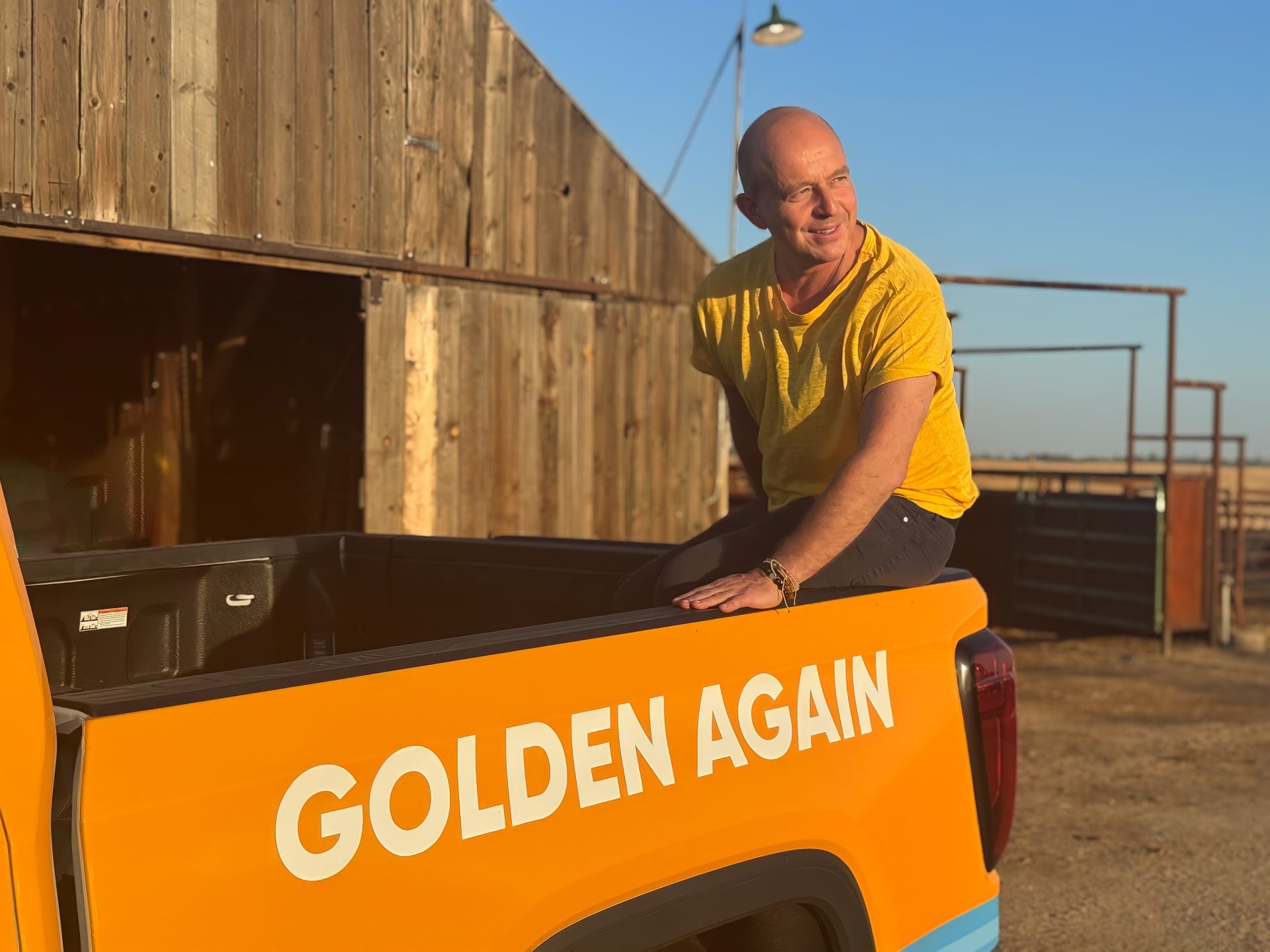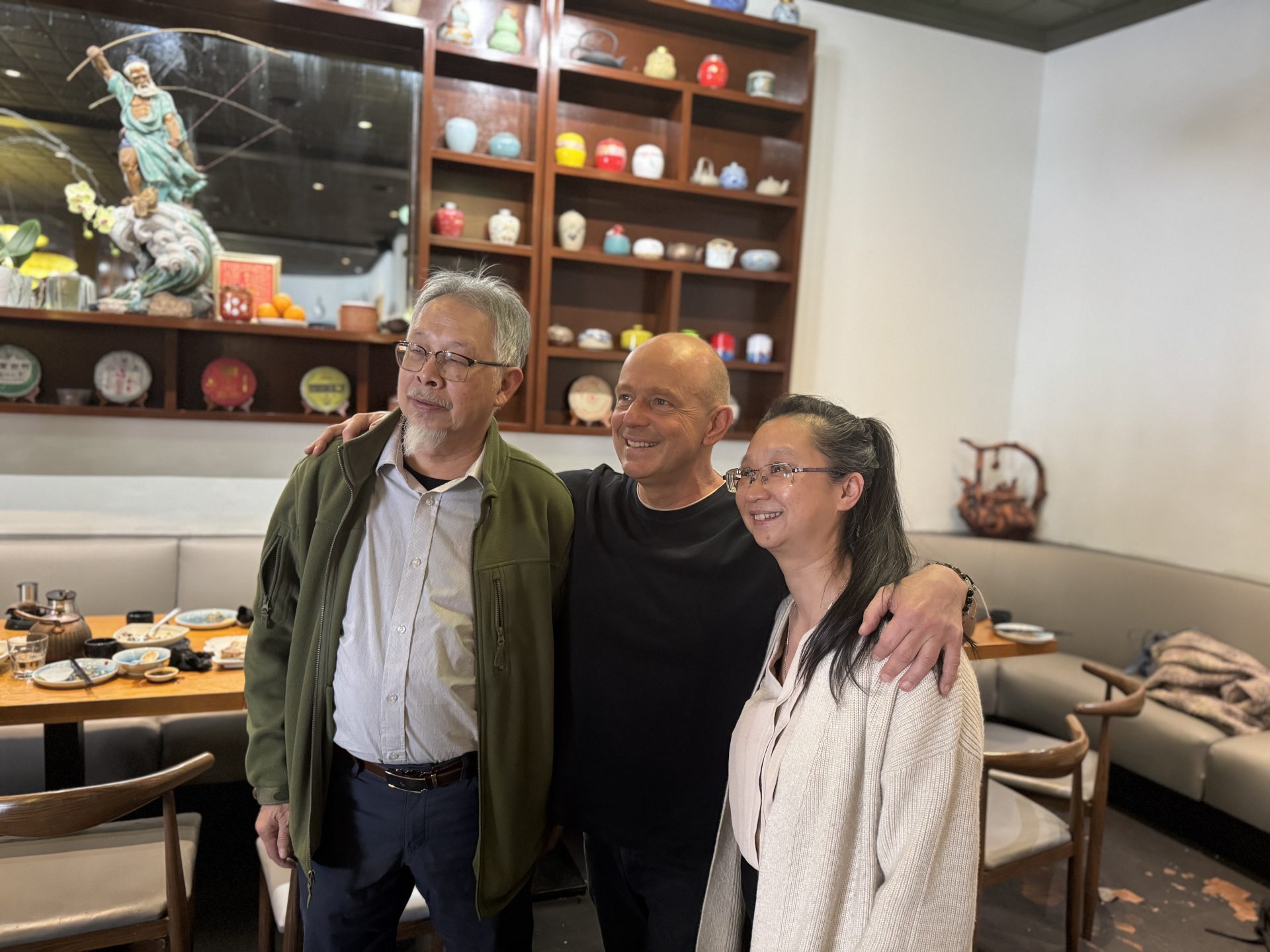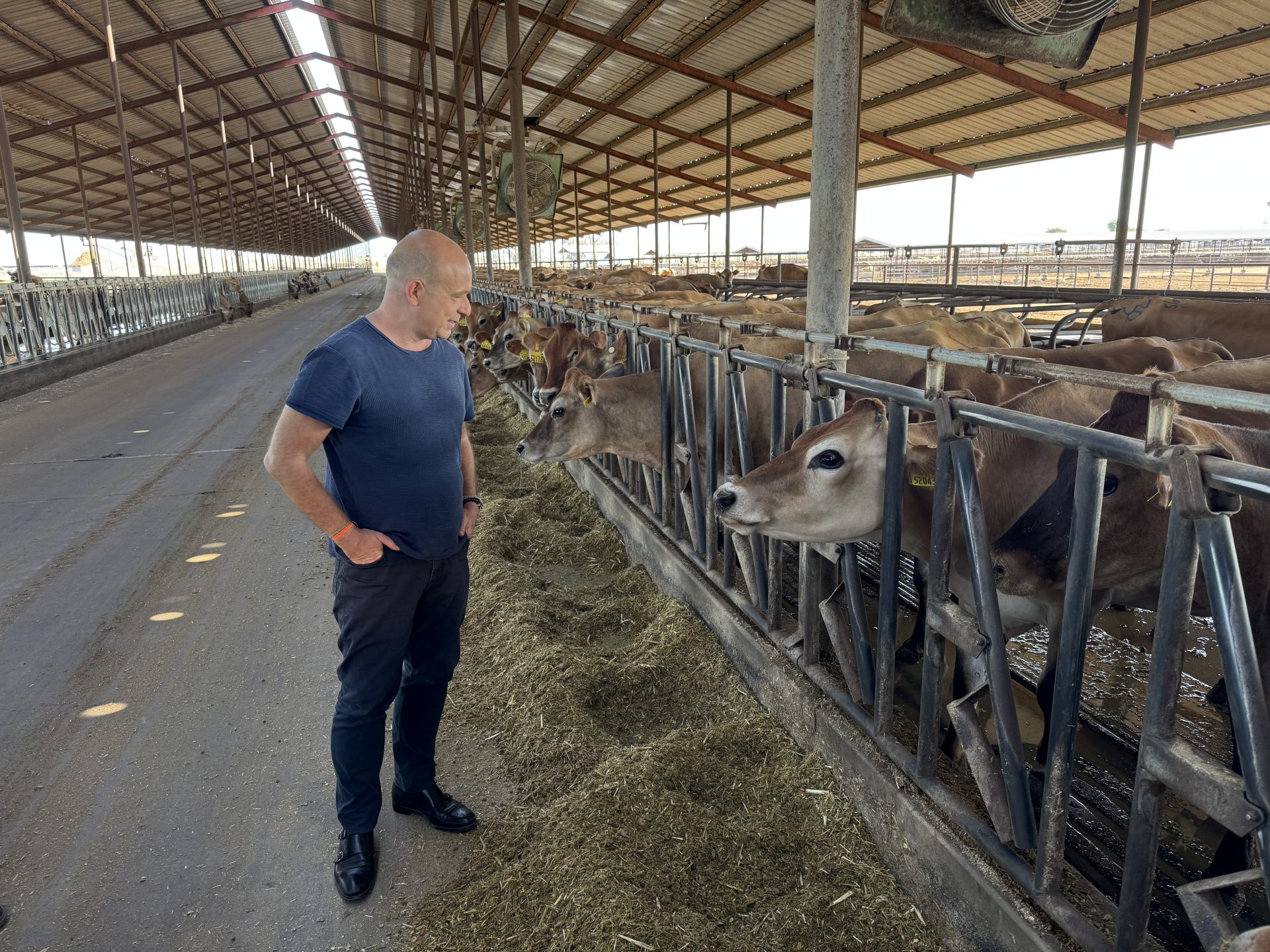Manjit Singh Moltani was 19 years old when he arrived in the United States as an undocumented migrant from the Punjab. More than three decades later, he runs a thriving family business with five petrol stations in central California; he embodies all the clichés about the American Dream. When we meet beside his pumps on a hot day in Huron, the poorest town in this prosperous state, he tells me he backed Donald Trump in last year’s presidential election despite previously voting for Hillary Clinton and Joe Biden. “I like the fact that he’s the real boss, even if people are scared of him.”
Now Trump is trying to scare California’s rulers, sparking fresh fears about abuse of power. Yet Moltani also voted for Gavin Newsom, the Democratic governor seen on the Right as an emblem of progressive elitism, the figure at the centre of the President’s explosive confrontation with the state. So, like millions of his fellow countrymen, this Sikh entrepreneur highlights both the key role of illicit migration in shaping the United States and the unpredictable electoral churn in Western democracies as populism reshapes politics.
Moltani, however, doesn’t recognise the shaven-headed man with a British accent who has just interviewed him about retail theft and soaring energy costs. It is Steve Hilton — the former advertising man who tried to modernise the British Tory party and worked in David Cameron’s Downing Street before fleeing to the US in 2012 to become a Fox News presenter and Trump cheerleader. Now, in his latest reincarnation, he is campaigning to become the Republican governor of a state dominated for two decades by the Democrats.
Hilton’s campaign feels a long way any talk of hugging hoodies. Instead, he has recently been to Los Angeles where he filmed campaign videos about the city’s “tense and menacing situation” of civil unrest after the White House deployed the National Guard to tackle civil unrest.
This shift in White House focus feels laden with potent symbolism. Yet Hilton claims to be baffled by journalists seeing this as an issue revolving around their President. “The real story,” he tells me, “is the total inability of California’s government to protect people, communities and small businesses from the violent, activist-driven mob. No one is ever held accountable.” He abhors the vandalism and destruction of small businesses that has taken place. And he describes angrily “the collapse of civilised standards of life in Los Angeles, the overwhelming smell of piss and shit everywhere you go that’s become normal.”
This “obsession” with Trump is absurd, he claims, given the way America’s second city is being allowed to collapse into “squalor and decay”. The real questions, he says, surround Newsom’s failure to stop protests escalating out of control. “Instead you see how our authorities seem incapable — or unwilling — to control violent criminal behaviour. Why didn’t Newsom call in the National Guard immediately? Instead, he was issuing pathetic political statements, pandering to the Left, to the activists who the Democrats really represent, rather than protecting the law-abiding majority. It feels like a civilisational collapse.”
Manjit Singh Moltani was 19 years old when he arrived in the United States as an undocumented migrant from the Punjab. More than three decades later, he runs a thriving family business with five petrol stations in central California; he embodies all the clichés about the American Dream. When we meet beside his pumps on a hot day in Huron, the poorest town in this prosperous state, he tells me he backed Donald Trump in last year’s presidential election despite previously voting for Hillary Clinton and Joe Biden. “I like the fact that he’s the real boss, even if people are scared of him.”
Now Trump is trying to scare California’s rulers, sparking fresh fears about abuse of power. Yet Moltani also voted for Gavin Newsom, the Democratic governor seen on the Right as an emblem of progressive elitism, the figure at the centre of the President’s explosive confrontation with the state. So, like millions of his fellow countrymen, this Sikh entrepreneur highlights both the key role of illicit migration in shaping the United States and the unpredictable electoral churn in Western democracies as populism reshapes politics.
Moltani, however, doesn’t recognise the shaven-headed man with a British accent who has just interviewed him about retail theft and soaring energy costs. It is Steve Hilton — the former advertising man who tried to modernise the British Tory party and worked in David Cameron’s Downing Street before fleeing to the US in 2012 to become a Fox News presenter and Trump cheerleader. Now, in his latest reincarnation, he is campaigning to become the Republican governor of a state dominated for two decades by the Democrats.
Hilton’s campaign feels a long way any talk of hugging hoodies. Instead, he has recently been to Los Angeles where he filmed campaign videos about the city’s “tense and menacing situation” of civil unrest after the White House deployed the National Guard to tackle civil unrest.
This shift in White House focus feels laden with potent symbolism. Yet Hilton claims to be baffled by journalists seeing this as an issue revolving around their President. “The real story,” he tells me, “is the total inability of California’s government to protect people, communities and small businesses from the violent, activist-driven mob. No one is ever held accountable.” He abhors the vandalism and destruction of small businesses that has taken place. And he describes angrily “the collapse of civilised standards of life in Los Angeles, the overwhelming smell of piss and shit everywhere you go that’s become normal.”

This “obsession” with Trump is absurd, he claims, given the way America’s second city is being allowed to collapse into “squalor and decay”. The real questions, he says, surround Newsom’s failure to stop protests escalating out of control. “Instead you see how our authorities seem incapable — or unwilling — to control violent criminal behaviour. Why didn’t Newsom call in the National Guard immediately? Instead, he was issuing pathetic political statements, pandering to the Left, to the activists who the Democrats really represent, rather than protecting the law-abiding majority. It feels like a civilisational collapse.”
Once Hilton pushed claims about “Broken Britain” under New Labour; today, it is “civilisational collapse” in California under the Democrats. These are themes I heard repeatedly during the three days I spent on the campaign trail with him as a multitude of tangled issues around immigration and violence kept cropping up.
It might seem that he has embarked on a quixotic quest — especially when his fight could pitch him against former vice president Kamala Harris. After all, this state is the bedrock of American liberalism. But even Newsom admits the Democrats’ brand has become “toxic”, as bureaucracy drives out businesses, the high cost of living forces out families, and growing encampments of mentally ill and addicted citizens expose the failure of progressive politics. But given that Trump managed to flip 10 of California’s 58 counties last year, and with voters backing a measure making it easier to prosecute theft and drug crimes, Hilton’s “positive populism” might find a fair hearing. But success will depend on his navigating the endless waves of political turbulence stirred by the President while persuading people such as the gas station boss in Huron that he is a suitable person to run the world’s fourth biggest economy.
Hilton is leaning into the hustle, deploying skills honed on prime-time television. “The next revolution is going to be the California revolution,” he tells a meeting of farmers and funders, referencing the name of his former Fox News show. “People say it’s impossible — you’ll never have anyone but Democrats. Bullshit. They want us to give up, they want us to be demoralised, they want us not to fight back. I’m here to tell you I’m sick of this. I moved here with my family in 2012. This is my home. I raised my family here; I started a business here. I am here because I love this place and I’m sick of seeing the soul, the spirit of California, being crushed.”
His life story is sold as part of his pitch for the state’s top job. He talks about his Hungarian immigrant parents, his time in British politics, his teaching at Stanford, his pride in becoming a US citizen four years ago. He jokes about his accent — although one admirer at a fund-raising dinner confided to me that it makes every Brit sound smart to them. Driving around the state in an orange truck emblazoned with his name and “Golden Again” campaign slogan, this unlikely candidate gamely dons a Stetson, clambers on a horse at a ranch and poses for the endless selfies that are now routine for anyone in the public eye. He seems to easily embrace his new role as an American politician, his energy never flagging over the endless interviews and dinners.

Hilton’s core campaign message is simple: that his home state symbolises an American dream that has curdled under the one-party rule of hard-Left Democrats. His hatred of red tape and visceral disdain for an overbearing state is familiar to anyone who has worked with him — as I did in the early days of Cameron’s regime. As one mutual colleague once told me, outsiders would see a liberal Tory with his T-shirts and bare feet, yet he was often the most devout ideologue pushing Right-wing radicalism in a coalition government. Cameron sniped in his memoir that Hilton’s ideas were “one part brilliant to several parts bonkers, the latter of which included cutting the civil service by 70%”. When I mention this, he laughs and says it was really 90% — making Elon Musk look like a statist wimp.
There are plenty of targets for him in California, where an expanding thicket of red tape has led the state to be deemed the worst in the country for doing business as well as having the highest poverty rates. “It’s bottom of every list you want to be the top of and top of every list you want to be the bottom of,” Hilton intones frequently.
In these initial weeks of his campaign for an election 17 months away, Hilton is criss-crossing the state to reach beyond Fox News viewers — the channel is watched by about two million Americans daily — and establish himself as a serious contender. He travels from roundtables in San Francisco to massive farms in the agriculture belt. In a dim sum restaurant in Chinatown, I listen as his audience complains about rent controls, vacant properties in the city and newly arrived migrants milking the welfare system. In the farmland, they bemoan the water restrictions and labour laws impacting their efforts.
It is often forgotten that California’s agricultural sector is the biggest in America with all its almonds, cows, grapes, pistachios, and strawberries — all helping the state overtake Japan in economic size but all the while heavily reliant on migrant workers. During a visit to the world’s biggest cheese-making plant in Hilmar, Hilton questioned the use of undocumented migrant labour, and asked why they could not attract more American workers. “It’s a harder job than most people are used to — cows have to be milked daily,” replied one man. Another claimed that Californians were deterred when they can collect $50,000 a year in state and federal benefits. “We have able-bodied Americans living off the government and we need to reduce that safety net to the people that truly need it,” said Matt Budine, the president of Progressive Dairy, a consultancy involved with 13% of US cows.
Yet Budine was sceptical about Republican claims that these jobs would be filled by local people even if they paid six-figure salaries and improved facilities in fields. Most Americans, he tells me, have been “conditioned” to look down on such work, and it would take decades to change such attitudes. “If the migrants are kicked out and it becomes problematic for dairy producers, then we will put in robotic dairy milking systems — big carousels that only take four workers for 8,000 cows versus four workers for 1,000 cows. The jobs go away. It costs more money.”

Hilton prepared for his campaign with a book called Califailure: Reversing the Ruin of America’s Worst-Run State, which lacerates the failures he sees in the state under its “far-Left experiment” and offers his platform for salvation rooted in deregulation. He is collecting fresh ammunition about “the insane nanny state with its bloated, micro-managing bureaucracy” on the campaign trail. He tells me of one winery where the owner wanted to expand its 30-limit capacity by just 20 people. “It took six years and a million dollars in legal fees, environmental audits, inspections, consultants, all of this nonsense — and that’s typical. It is why so much is moving to other states and gets to the heart of what’s gone wrong in California.”
Hilton points also to recent news from Nvidia — “a fantastic tech company here in Silicon Valley leading the AI revolution” — revealing it will spend half-a-trillion dollars with partners to design and build the next generation of supercomputers in the US. “None of it is in California. It’s all in Arizona. In Texas. Because you can do things there that you can’t do here.” Having just read the historian Dominic Sandbrook’s book about Britain in the first years of Margaret Thatcher’s government, he sees striking parallels in his adopted state with Britain in the Seventies when it was plagued by industrial unrest and in need of ambitious reform. “California is the sick man of America,” he says.
While Americans don’t know much about his Tory years, Hilton’s Right-wing Fox profile proceeds him in some parts of California. Checking into a hotel late one night, a Kenyan-born receptionist was thrilled to see him. “Steve talks about bringing the cost of living down, which is what I want, and talks about us being human beings, not machines,” he tells me. Yet testing out a different demographic among anti-Trump protesters outside the Stanislaus County Lincoln Day Dinner, few knew much about him. “I heard he’s a red Tory but I want to know why he broke up with Cameron,” says Amy, before asking me about his position on Brexit. “So he basically ruined the UK, then left to come here, right? He can get lost. I saw his opinion on the fires in Los Angeles and it was total bullshit.”
He certainly doesn’t have the reputation of Arnold Schwarzenegger, who two decades ago won the governor’s race as a Republican. But he does have influential ties to Silicon Valley — aided by his wife’s work as a communications guru for Google, Meta and Netflix — which could be useful for winkling out some wealthy donors. Hilton is hopeful: he constantly trots out the spiel that the state has more Republican voters than most people think, with the party winning about 40%, even in a bad year. He also says that the rise of populism exemplified by Trump shows how the tectonic plates of politics are shifting even in staunchly Democratic terrain. “We are the party for the workers now,” he claims. “The ingredients are there. The tide is turning.”

How things have changed. Back in 2009 — the year before Cameron came to power — The Spectator ran a cover story entitled “Californian Dreaming” that reported on how Hilton and the Conservatives saw the West Coast state as their blueprint for government. “They want to rebuild Britain in California’s image: dynamic, high-tech, green and ‘family-friendly’,” ran the article’s strapline. That was, of course, a very different era of detoxifying the nasty party. But it does feels rather ironic as I listen to Hilton hold up the state as a symbol of Democrat misrule and government overreach; California was, after all, being held up 16 years ago as a template for the Tories to be given a centrist makeover.
At one dinner, Tom McClintock, a congressman backing his bid, introduces Hilton by comparing his work with Cameron to the influence of immigration hardliner, Stephen Miller, on Trump. It is hard not to believe that comparisons to such a toxic extremist would have caused squirming discomfort to the liberal Londoner modernising the Tories two decades ago — a man viciously satirised as ‘‘the eco-friendly, media-savvy, blue-sky-thinking” Stewart Pearson in The Thick of It.
Hilton, though, says he would be “proud” to have the endorsement of his disruptive President, insisting both his campaign and support for Trump is fuelled by the same ideology that he has always held, inspired by his upbringing, with aspirations for a better life and a determination to devolve power. “This belief that people should have the freedom and opportunity to follow their dreams and live the lives they want is being crushed and held back by big, bureaucratic power. But not just in government. I’ve also been making the same argument in relation to corporate power pretty much continuously for the past 30 years.”
He points to his work on social justice with Iain Duncan Smith and the fact that Bernie Sanders in his first presidential campaign made strong arguments against open borders on the grounds that unfettered immigration undercut wages. He was struck, he tells me, by Trump’s attempts to recalibrate the Republican Party around working-class people and data he saw showing how earnings have remained flat in real terms for most Americans for decades. “I hadn’t really thought about what populism really meant,” he says, “but I certainly related to it in so far as it was about lifting up working people left behind by establishment ideology.”
When I ask about his stance on immigration, he claims to be echoing his former boss in Downing Street. “I’m an immigrant twice over. So I am pro-immigration. America, of all countries, is pro-immigration. But public consent for immigration depends on government control of it — and the previous administration just completely lost control. This is very corrosive. It gives a sense that government can’t cope, can’t handle problems — and that’s how Dave used to talk about it.”

What about his attitude to climate change? After all, he once voted Green and was the architect of the Tory slogan “vote blue, go green”. He bats aside any suggestion of shifting views, insisting there is a big difference between the green agenda of environmental protection and the Left’s “monomaniacal” zealotry on climate that has led to California’s energy prices being the highest in the US. At one point he jumps out of the truck to shoot a video showing a big solar farm sitting by tomato and melon fields. “That will do very well,” he says, walking back to the vehicle. “It’s just so ridiculous ripping out crops for this. It’s all done by private equity.” It’s the perfect example, he says, of how “insane” Democrat policies end up harming the environment while setting undeliverable targets that hurt local interests. It’s not green, he says. It’s stupid.
It is odd watching Hilton in this latest incarnation: a Republican candidate campaigning to save California. The sun-kissed state does have profound problems, yet travelling alongside him much of it seems far from ruined. And I am unpersuaded by his arguments for Brexit or Trump, let alone his claim that these two populist movements might further his ideals that have not altered over the past 20 years.
Certainly, a Republican victory in California next year would be the ultimate rebuke for the desperate Democrats. And while it seems unlikely, only a fool would make predictions amid the turbulence of our current moment. And now this state of 40 million people — with its veneer of progressive politics and great wealth masking chronic problems — has been sent spiralling by the President into the centre of a bitter showdown over America’s future. “It’s now or never for California,” says Hilton. “We’ve got the best shot of winning for a long time because I think people sense we can’t go on like this.” On this point at least, he is surely right.
















